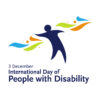The National Disability Insurance Scheme (NDIS) Quarterly Report shows the world-first reform continues to play a vital role in supporting hundreds of thousands of Australians with disability – as well as their families and carers.
Data from the latest report reveals that, as of 31 December 2022, the NDIS was supporting 573,342 participants across the country.
This includes more than 42,000 Australians who identify as First Nations people – an increase of more than 18 per cent (6,647 participants) in the past 12 months.
National Disability Insurance Agency (NDIA) CEO Rebecca Falkingham welcomed the improving numbers of First Nations participants but acknowledged the Agency must do more to continue to build trust among First Nations communities in the Scheme.
“A key part of the success of the NDIS is ensuring those who need additional support can access those services earlier, which can lead to improved outcomes later in life,” Ms Falkingham said.
“This report tracks the Scheme’s performance, and in addition to showing us areas that need greater attention, it also highlights the tangible, positive outcomes we’re seeing.”
In the recent quarter, the Agency took decisive steps to reduce the time it takes to safely discharge NDIS participants from hospital when they are medically ready to do so
Work continues on meeting the new performance targets, and encouragingly the average time taken for participants to be discharged with an approved NDIS plan has reduced.
As at 31 December 2022, the average number of days for an NDIS participant to be discharged from hospital once medically ready to do so was 33 days.
The Quarterly Report also includes data from the recent Participant and Families and Carers Outcomes reports.
Key highlights reveal relative increases in several key outcome areas when compared to the first reporting period:
- For young participants (aged 0 to starting school age): 68% of parents/carers say their child can make friends outside of the family – a 33% relative increase.
- For participants aged 0 to 14 years: 88% of parents say their child fits better into everyday family life after five years – a 19% relative increase.
- For participants 15 years and over: 78% reported being able to choose how to spend their spare time – a 34% relative increase.
- For families and carers: 55% of families/carers are in paid employment – a 21% relative increase.
“We are striving to ensure we have an NDIS that works for everyone. We will continue working to implement measures that directly improve the lives of our participants,” Ms Falkingham said.
“We also look forward to the Federal Government’s Review of the NDIS whereby we can hear directly from the entire disability community as to what we all aspire to and how we’re going to get there.”
Source: NDIS.gov




